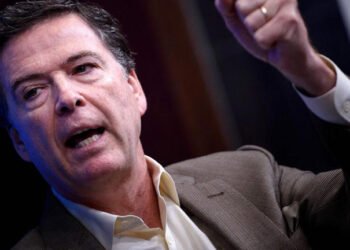In an era marked by the escalating impacts of climate change, the integration of climate finance into the core operations of Development Finance Institutions (DFIs) has become a strategic imperative.
Professor Joshua Yindenaba Abor, a distinguished Financial Economist and Professor of Finance at the University of Ghana Business School, has underscored the critical role DFIs play in this domain. Speaking at an inaugural lecture of the Ghana Academy of Arts and Sciences (GAAS) on the topic, “Rethinking Development Finance for Inclusive Green Finance: Are there Financial Stability Implications?”, Professor Abor provided a comprehensive roadmap for harnessing the potential of DFIs to combat climate change and promote sustainable development.
Professor Abor highlighted that DFIs, with their robust capacity to mobilize additional finance and develop relevant frameworks, are uniquely positioned to implement green projects. This capability ensures that sustainable climate policies align seamlessly with the Sustainable Development Goals (SDGs) and other international climate agreements.
By mainstreaming climate finance into their operations, DFIs can effectively contribute to global climate action. This integration involves embedding climate change considerations into their activities, financing mechanisms, and adaptation strategies.
DFIs, such as the Development Bank of Ghana, are pivotal in mobilizing resources to address climate change and promote sustainable development. Leveraging their strong credit ratings, DFIs can attract financial resources from capital markets, enabling them to provide long-term capital support for development projects.
This financial muscle is crucial for funding initiatives in smart/green agriculture, clean energy, and green infrastructure—areas that are essential for mitigating climate change and fostering sustainable development.
Collaboration and Political Will
Collaboration between Multilateral Development Banks (MDBs) and National Development Banks (NDBs) is vital for contextual knowledge on safeguards, risk management frameworks, and appropriate pricing models before lending to target entities.
Professor Abor emphasized the importance of engaging shareholders to garner the political will necessary for supporting climate change initiatives. This political backing is crucial for the successful implementation of climate-related projects.
In addition to public and multilateral funding, leveraging private sector investments is essential for scaling up climate finance. DFIs can play a catalytic role in attracting private sector investments by providing de-risking mechanisms and creating conducive investment environments. This blended finance approach can significantly amplify the resources available for climate action.
Professor Abor also outlined the critical role of governments in increasing public investment in climate-related areas through domestic revenue generated from appropriate carbon taxes. By implementing carbon pricing mechanisms, governments can create a steady revenue stream to fund climate initiatives. Furthermore, revising the architecture for channeling Special Drawing Rights (SDR) to allow surpluses to serve as a source of international public funding for climate change can provide additional financial resources.
Exploring Carbon Markets and Promoting Trade
The exploration of voluntary and compliance carbon markets is another avenue for mobilizing climate finance. By promoting intra-regional trade, countries can reduce carbon emissions and enhance the efficient management of natural resources. These measures can contribute to a more resilient and sustainable economic system.
The mainstreaming of climate finance into the operations of DFIs is not just a strategic imperative but a necessary evolution to ensure sustainable development in the face of climate change. Professor Joshua Yindenaba Abor’s insights provide a comprehensive framework for DFIs to align their operations with global climate goals.
By mobilizing finance, developing robust frameworks, fostering collaboration, and leveraging private sector investments, DFIs can play a transformative role in addressing the climate crisis. Governments, on their part, must support these efforts through policy measures and increased public investment. Together, these strategies can pave the way for a sustainable and resilient future.
READ ALSO: Africa Offers Attractive Investment Opportunities for Japanese Firms- AfDB Leaders



















